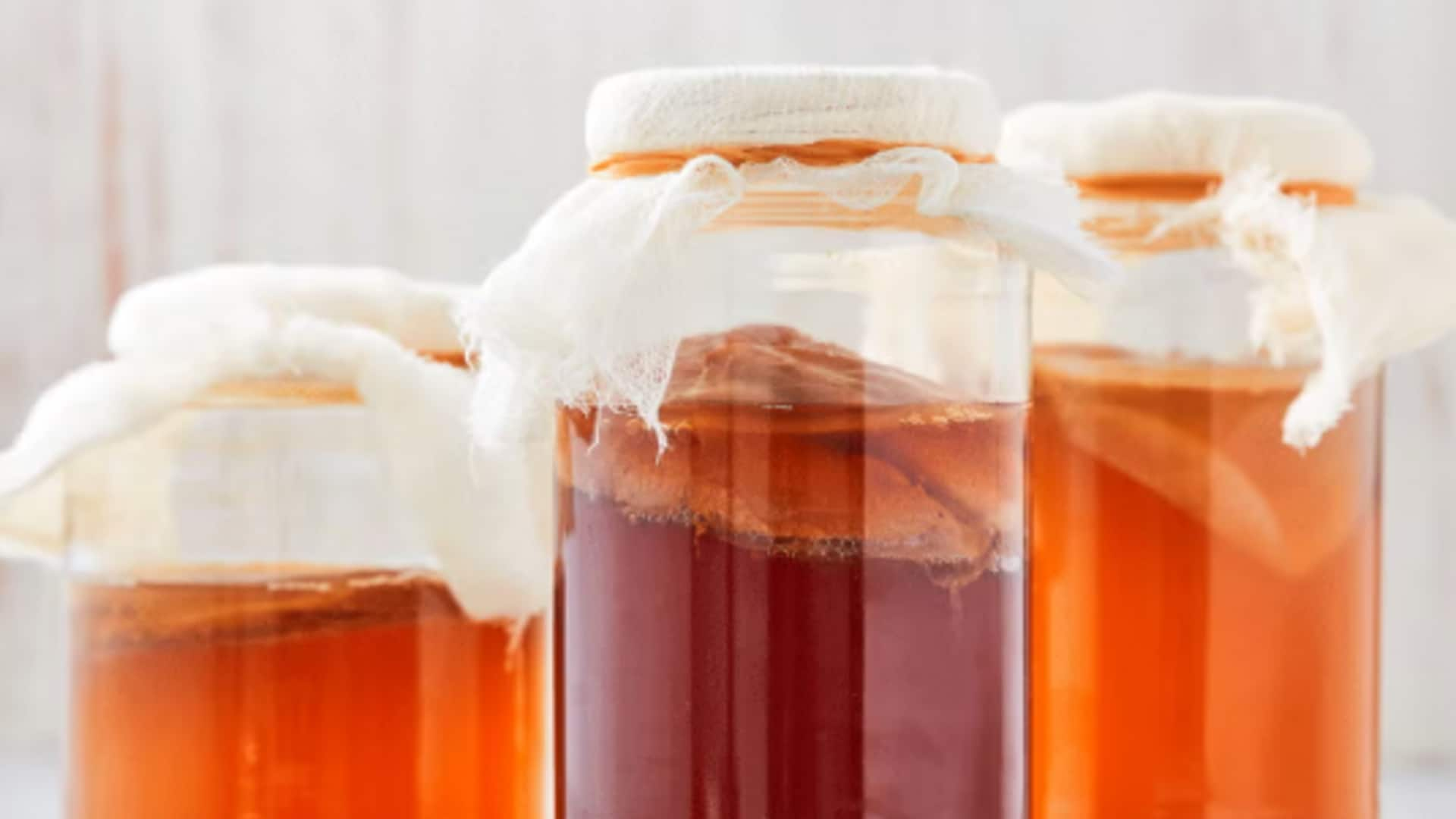
Brew your own kombucha at home: Here's how
What's the story
Kombucha, the fizzy fermented tea, is a favorite drink for many due to its health benefits.
But, let's be honest, store-bought kombucha can get pricey.
In this article, we will uncover the secrets to brewing delicious kombucha on a budget.
Follow these easy steps, and you'll be sipping on that probiotic goodness without emptying your wallet.
Essentials
Start with the basics
To start brewing kombucha, you only need four things: a SCOBY (symbiotic culture of bacteria and yeast), tea, sugar, and water.
You can get a SCOBY from a friend who already brews kombucha or buy one online for about $10-$15.
Black or green tea is cheap and works great.
Go for plain white sugar. It's the cheapest option for feeding your SCOBY.
Gear up
Utilize affordable equipment
Don't worry, you won't need to buy any fancy brewing equipment. A large glass jar ($5-$10) and some cloth (for covering the jar) are all you need to start your Kombucha journey.
Make sure the cloth is breathable yet tight enough to prevent unwanted stuff (like dust or bugs) from getting in.
You can use rubber bands or string to secure the cloth over the jar opening.
Bulk benefits
Bulk buying saves more
Buying tea and sugar in bulk will drastically cut costs in the long run.
For instance, purchasing a pound of loose-leaf tea may seem pricier upfront but will yield many more batches compared to the same amount of pre-packaged tea bags.
And, getting sugar in bigger quantities can reduce the cost per batch by half.
Efficiency
Continuous brew method
In the continuous brew method, you leave some brewed kombucha in your container when bottling and just add fresh sweetened tea to it.
This method is not only a time-saver, but it's also more economical as you're using less sugar and tea per batch than you would if you were starting from scratch each time.
Community
Share and exchange resources
Interacting with kombucha communities online or locally often results in SCOBY swaps, removing the need to purchase them.
These groups also provide tips on getting bulk ingredient discounts and sourcing second-hand equipment, which greatly reduces expenses.
This not only saves money but also fosters a sense of community and sustainability among brewing enthusiasts.
It makes the hobby both affordable and eco-friendly.